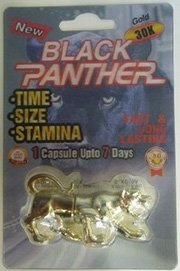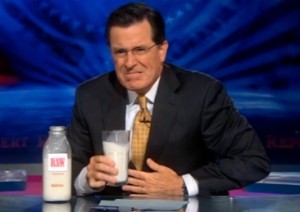Health Canada is advising Canadians about unauthorized health products that may pose serious health risks. The table below is updated when Health Canada finds unauthorized health products that are promoted for sexual enhancement, weight loss, as a workout aid, or as “poppers,” and that are labelled to contain or have been tested and found to contain dangerous ingredients.
 Unauthorized health products have not been approved by Health Canada, which means that they have not been assessed for safety, effectiveness and quality. Unauthorized health products can pose many health dangers, including:
Unauthorized health products have not been approved by Health Canada, which means that they have not been assessed for safety, effectiveness and quality. Unauthorized health products can pose many health dangers, including:
“Poppers” is a slang term for products that contain alkyl nitrites. Despite being labelled for various uses such as leather cleaners, room odourizers or liquid incense, these products are inhaled or ingested by consumers for recreational purposes. Alkyl nitrites, such as amyl nitrite, butyl nitrite and isobutyl nitrite, are prescription drugs and should be used only under the supervision of a health care professional. Products containing alkyl nitrites may pose serious risks, including death, depending on the amount used, how frequently they are used and how long they are used for, as well as the person’s health and the other medications they may be taking. Since it is difficult to control how much is inhaled, people can accidentally overdose. Swallowing these products can lead to serious medical complications and may be fatal. People with certain medical conditions (including recent head trauma, bleeding into the head, glaucoma, or heart disease) and those taking certain medications (particularly drugs used to treat erectile dysfunction, and other drugs such as high blood pressure medications, certain migraine drugs, and high doses of aspirin) or illicit drugs are at particular risk.
Sildenafil is a prescription drug used to treat erectile dysfunction and should be used only under the supervision of a health care professional. It should not be used by individuals taking any kind of nitrate drug (e.g. nitroglycerine) as it can cause potentially life-threatening low blood pressure. Individuals with heart problems are at increased risk of cardiovascular side effects such as heart attack, stroke, chest pain, high blood pressure and abnormal heartbeat. Other possible side effects include headache, facial flushing, indigestion, dizziness, abnormal vision, and hearing loss.
Tadalafil is a prescription drug used to treat erectile dysfunction and should be used only under the supervision of a health care professional. It should not be used by individuals taking any kind of nitrate drug (e.g. nitroglycerine) as it can cause potentially life-threatening low blood pressure. Individuals with heart problems are at increased risk of cardiovascular side effects such as heart attack, stroke, chest pain, high blood pressure and abnormal heartbeat. Other possible side effects include headache, facial flushing, indigestion, dizziness, abnormal vision, and hearing loss.
 Thyroid is a prescription drug ingredient commonly used to treat decreased or absent thyroid function, called hypothyroidism. Products containing thyroid hormone should be used with caution in patients also using medication to treat diabetes and blood clotting. There is also a risk to patients with cardiac conditions such as angina pectoris, high blood pressure and in the elderly as they have a greater likelihood of heart conditions.
Thyroid is a prescription drug ingredient commonly used to treat decreased or absent thyroid function, called hypothyroidism. Products containing thyroid hormone should be used with caution in patients also using medication to treat diabetes and blood clotting. There is also a risk to patients with cardiac conditions such as angina pectoris, high blood pressure and in the elderly as they have a greater likelihood of heart conditions.
Vardenafil is a prescription drug used to treat erectile dysfunction and should be used only under the supervision of a health care professional. It should not be used by individuals taking any kind of nitrate drug (e.g. nitroglycerine) as it can cause potentially life-threatening low blood pressure. Individuals with heart problems are at increased risk of cardiovascular side effects such as heart attack, stroke, chest pain, high blood pressure and abnormal heartbeat. Other possible side effects include headache, facial flushing, indigestion, dizziness, abnormal vision, and hearing loss.
Yohimbine is a prescription drug and should be used only under the supervision of a health care professional. Yohimbine is derived from yohimbe, a bark extract. The use of yohimbine or yohimbe may result in serious adverse reactions, particularly in people with high blood pressure, or heart, kidney or liver disease. Side effects include increased blood pressure and heart rate, anxiety, dizziness, tremors, headache, nausea and sleep disorders. It should not be used by children, or pregnant or nursing women.
Zopiclone is a prescription drug used to treat insomnia. Side effects associated with zopiclone include unpleasant taste, drowsiness, dizziness, memory loss and hallucinations.









